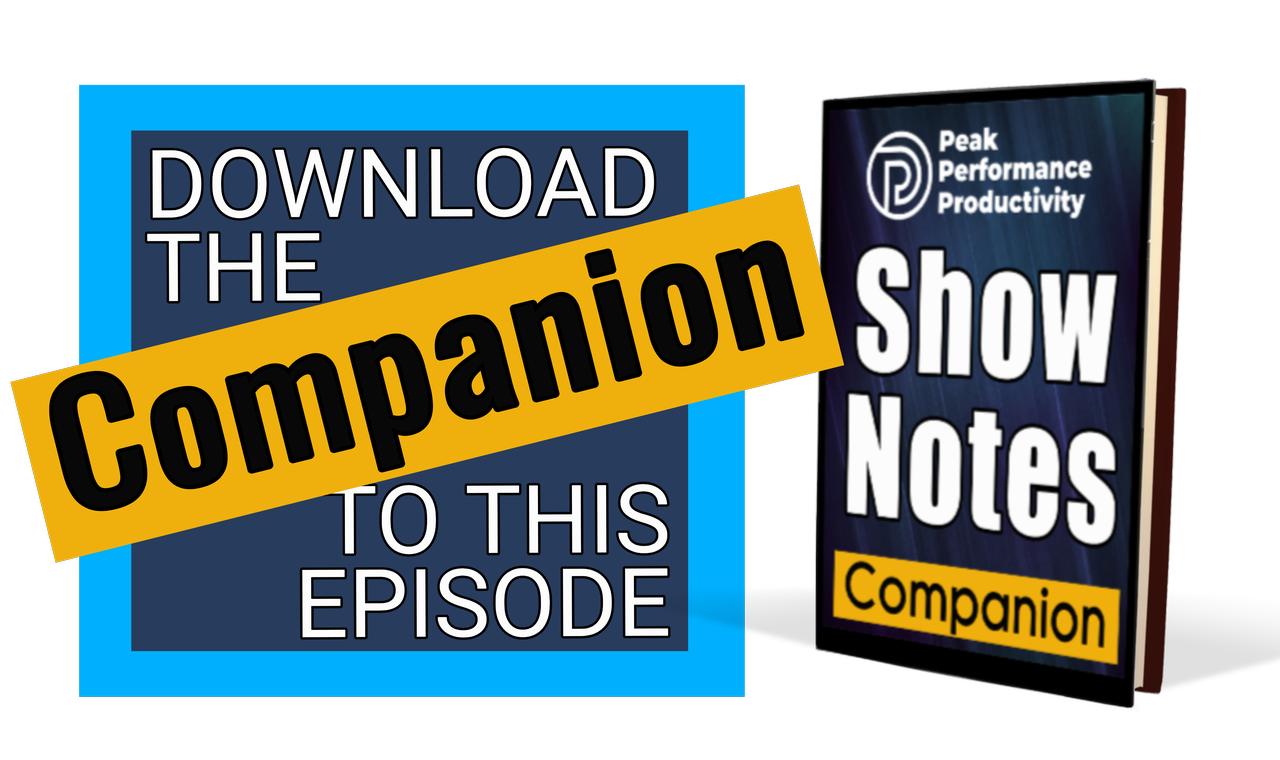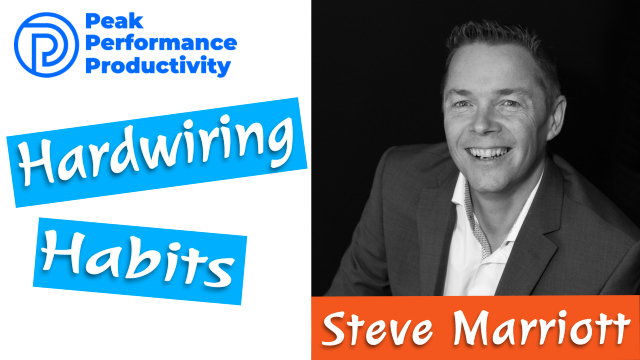Episode Summary - Forming Productive Habits
Forming Productive Habits is a key skill to develop if you want to up your game and get more done. There’s a lot of folklore and old wives tales about what you need to do and how long it takes to form any habit.
However a growing body of behavioural and neuroscience research has helped us understand what happens when we form a habit. This research is also showing us how we can take control of that process by choice.
In this episode, neuro-enthusiast Steve Marriott dissects the anatomy of a habit and how it is formed in our brain. His insights will help you when forming productive habits.
About Steve Marriott
Steve Marriott is a behavioural specialist with over 25 years of experience in the people development space.
The author of two books, he is a prolific facilitator, speaker and performance coach and has worked in some of the toughest and most regulated industries in the world
He has majored in leadership development focusing on the practical intersection of neuroscience and performance psychology to create a cutting edge approach to working with teams and their leaders.
A brilliant presenter and insightful facilitator, his ability to manage, engage and stimulate learning with even the toughest of audiences is impressive to say the least.
I was really excited about having Steve on the show for two reasons.
The first was because of his depth of knowledge of neuroscience and the amount of preparation I know he did for the interview, even though I told him not to.
But secondly because I have personally worked with and alongside him for the last 10 and have seen first hand how brilliant his insights are.
So it was a real joy and a privilege to have such a great friend and valued colleague on the show.
Show Notes On Forming Productive Habits
2:08 - why Steve chose to focus his attention on neuroscience and behaviour.
3:27 - The benefits of understanding neuroscience when working with people.
5:39 - the first neuroscientific insight Steve had that he was able to practically apply and benefit from.
8:37 - why we need to recognise every single brain on the planet is different.
9:26 - how do you take an objective view of yourself when you are struggling with something to be able to deal with it.
10:51 - The thing Steve discovered that was holding him back and the 2 word piece of advice that radically changed his perspective on his internal struggles.
12:22 - The answer to the million dollar question - “Can People Change?”
13:04 - Why changing your behaviour and your habits is difficult but possible.
14:39 - Why evolution has made it so difficult for us to change.
17:05 - How many habits you actually have and why habits generally get bad press.
18:09 - The definition of a habit.
20:30 - The relationship between your conscious and subconscious mind when it comes to habits.
21:52 - What you need to know about how habits are formed when forming productive habits so you can change yours.
23:12 - The importance of cues and triggers in the development of behaviours and habits.
24:43 - What goes on when your habit is triggered.
26:09 - The importance of payoff in the formulation of your habits.
27:19 - A brief explanation of David Rock’s SCARF model and its impact on the formulation of habits.
29:30 - How the sense of completion plays its part in the formulation of habits.
30:40 - The 4:45am club and why that works for behaviour development.
31:25 - How neuro-chemicals affect the formulation of your behaviours and forming productive habits.
32:43 - What to do and how to do it to set up a new behaviour that you want to install as a long term habit.
34:00 - A powerful quote from Chip and Dan Heath that explains why habit formulation sometimes doesn’t work (and what you can do about it).
35:19 - If your habits are like this, then they’ll be much easier to install long term.
36:15 - Things you can do so you can get out of bed early every morning.
37:37 - The three simple steps to creating a new habit and especially forming productive habits.
39:03 - Why you need to remove any and all barriers to doing your habit to ensure its success.
40:46 - Why you need to make a mental commitment to your new habit.
41:45 - A story about developing habits about Rugby superstar Johnnie Wilkinson.
42:32 - How to build up resilience for when you fall off the wagon with your new habit.
45:38 - How long it takes to completely install a new habit (the answer isn’t a simple one but is a powerful one).
47:56 - The importance of repetition and coordination in the development of habits.
50:38 - The one thing Steve Recommends when forming productive habits.

Enter Your Details And Click On The Green Button
Contact Steve Marriott About Forming Productive Habits
Steve’s Books, Products & Services
Mr Badger Moves Home
Mr Badger Creates His Own Green Path
Steve Marriott’s Website
References & Links Mentioned
As an Amazon Associate this site earns from qualifying purchases.
Robert Sapolsky
Subscribe & Review The Peak Performance Productivity Podcast
Thanks for tuning in to this week’s episode of the Peak Performance Productivity Podcast! If the information shared in these interviews have helped you develop your productivity, then please head over to Apple Podcasts, subscribe to the show, and leave us an honest review. Your reviews and feedback will not only help us continue to deliver content to help you get even more juice out of life, but will also help us reach even more amazing people just like you!
Connect With The Host
Connect with Michael Tipper, the host of the Peak Performance Productivity Podcast on LinkedIn: https://www.linkedin.com/in/michaeltipper/






